As temperatures rise in Placer County, there's nothing worse than your AC deciding to take an untimely hiatus. Before you break into a sweat, arm yourself with the knowledge to tackle common AC issues and keep your home comfortably cool. In this guide, we'll walk you through essential AC repair tips every homeowner should know.
Keeping Your Cool in Placer County: A Homeowner's Guide to AC Repair
Julian's Heat And AC
What Goes on During an AC Repair?
During an AC repair service, licensed HVAC technicians conduct a thorough assessment of your system, diagnosing the root cause of any issues. From checking refrigerant levels to inspecting electrical connections and ductwork, every aspect of your AC system undergoes scrutiny. Once the problem is identified, technicians recommend the necessary repairs and provide detailed explanations of the work involved.
Common AC Problems and Solutions:
Air Filter Inspection: A clogged or dirty air filter can restrict airflow, diminishing your AC's efficiency and cooling capacity. HVAC technicians will inspect and replace the filter as needed, a simple yet effective step that can improve system performance.
Refrigerant Levels: Low refrigerant levels can indicate a leak, leading to inadequate cooling. Repairing a refrigerant leak involves locating and sealing the leak before replenishing the refrigerant to the manufacturer's specified level.
Condenser Coil and Blower Check: Outdoor condenser coils can accumulate dirt over time, while blower components may wear out. Cleaning the coil and repairing or replacing blower parts can help maintain optimal AC efficiency.
Electrical Connections and Controls: Loose electrical connections and worn-out controls can compromise AC functionality and pose safety risks. Technicians will inspect and tighten connections, as well as replace faulty controls to ensure smooth operation.
Ductwork Inspection: Leaky or obstructed ductwork can result in inefficient cooling and uneven temperature distribution. HVAC professionals will inspect the ducts for leaks and obstructions, sealing any gaps and ensuring proper airflow throughout your home.
Common AC Problems and Solutions:
Poor Airflow: If you're noticing weak airflow from your vents, it could be due to a clogged air filter or blocked vents. Check and replace your air filter regularly, and ensure that furniture or other obstructions aren't blocking airflow.
Warm Air: Nothing's more frustrating than your AC blowing warm air on a scorching day. This could indicate a refrigerant leak, a malfunctioning compressor, or dirty coils. Schedule a professional inspection to diagnose and fix the issue promptly.
Strange Noises: Banging, rattling, or squealing noises coming from your AC unit are cause for concern. These sounds could signal loose components, worn-out belts, or failing motors. Turn off your AC and contact a technician to prevent further damage.
Thermostat Issues: A faulty thermostat can wreak havoc on your AC's performance. Check your thermostat settings and replace the batteries if needed. If your thermostat is outdated or malfunctioning, consider upgrading to a programmable or smart thermostat for better control and energy savings.
DIY Maintenance Tips:
Keep Your Outdoor Unit Clean: Clear debris, leaves, and vegetation from around your outdoor unit to ensure proper airflow and prevent overheating.
Regular Inspections: Perform visual inspections of your AC system, checking for leaks, damage, or signs of wear and tear. Address any issues promptly to avoid costly repairs down the line.
Schedule Annual Maintenance: Don't wait for problems to arise—schedule annual maintenance with a licensed HVAC technician. Professional tune-ups can improve efficiency, extend the lifespan of your AC unit, and catch minor issues before they escalate.
Conclusion
With the tips outlined in this guide, you'll be better equipped to handle common AC issues and keep your home cool and comfortable all summer long. Remember, when in doubt, don't hesitate to call a professional HVAC technician for assistance. Stay cool, Placer County!
AC Repair FAQs for Placer County homeowners
What happens during a professional AC repair service?
During an AC repair visit, a licensed technician inspects refrigerant levels, electrical components, airflow, coils, and ductwork to diagnose the problem. After identifying the issue, they explain the repair options and complete the necessary fixes to restore cooling performance.
Why is my AC blowing warm air instead of cold air?
Warm air may be caused by a refrigerant leak, dirty coils, thermostat issues, or compressor problems. Start by checking your thermostat and air filter. If the problem continues, a professional inspection is recommended.
What causes weak airflow from my air conditioning vents?
Weak airflow is often due to a clogged air filter, blocked vents, blower issues, or leaking ductwork. Replacing the filter and clearing vents may help, but persistent airflow problems require professional diagnosis.
Are strange noises from my AC unit a sign of serious problems?
Yes. Banging, rattling, grinding, or squealing sounds may indicate loose parts, worn belts, or motor failure. Turn the system off and schedule service to prevent further damage.
What maintenance can I do myself to keep my AC running efficiently?
Homeowners can replace air filters regularly, keep the outdoor unit clear of debris, ensure vents remain unobstructed, and visually inspect for leaks or damage. Annual professional maintenance helps prevent breakdowns and extends system lifespan.
